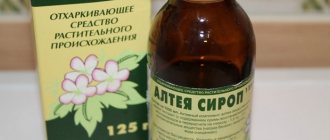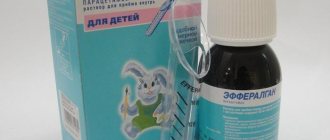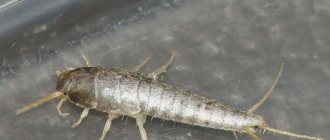Colic problem
The newborn’s body has to rebuild and adapt to new conditions, which is often accompanied by discomfort and, accordingly, the baby’s crying.
Most problems can be eliminated by observing the necessary care for the newborn, proper feeding, etc. With colic, a baby can scream for 2-3 hours and parents are powerless to help the baby. Colic usually begins in the third week of life, most often in the evenings or after feeding. Due to the immaturity of the baby's gastrointestinal tract, gases accumulate in the intestines, which cause painful cramps, bloating, and discomfort. This condition can last up to three months. Colic is considered a normal physiological condition for a newborn and treatment, as a rule, is not required, but you can try to alleviate the pain of the child. Dill water has long been used as a simple and effective medicine to combat intestinal colic.
The benefits of dill and dill water
Dill water is a tincture made from the seeds of dill (fennel) or dill. Dill and fennel are cultivated everywhere and are widely used both in cooking and as medicinal herbs. The seeds of these plants have many beneficial properties, due to which they are often used in medicine:
- Relieves spasm of intestinal smooth muscles during colic and flatulence;
- Promotes the removal of gases accumulated in the intestines;
- Improve the functioning of the gastrointestinal tract, help form the necessary intestinal microflora;
- Have a diuretic effect;
- Increase lactation;
- They are antiviral and bactericidal;
- Help relieve inflammation;
- It thins mucus when coughing and cleanses the bronchi well;
- Have a positive effect on the nervous system and have a sedative effect;
- Lower cholesterol levels;
- Dilate blood vessels;
- Improves heart function;
- Essential oils obtained from the seeds of these plants are widely used in cosmetology and perfumery.

Contraindications to the use of dill and fennel seeds may be individual intolerance and hypotension.
How to give dill water to a child and does it make sense?
Hello! Today, as always, I, the author of this project, Nadezhda Nikolaeva, noted with ease in my soul that my youngest child, who is one and a half years old, has not suffered from this for a long time
a delicate problem like constipation... But one friend, who gave birth quite recently, raised the question of how to give dill water to her child.
You all probably know the famous folk wisdom:
“Little children are little troubles.”
But only young mothers who have just given birth, for the most part, completely disagree with this saying. After all, in the first months of their baby’s life, it can be very difficult for both themselves and their beloved baby! The constant “hanging” of a newborn baby on the chest, the strict diet of a nursing mother, a complete lack of time for oneself, sleepless nights accompanied by terrible colic and gasping in the baby... So we’ll talk about the last problem - how to deal with infant gasps.
One of the most common pieces of advice on helping a newborn child with abdominal pain from gas, that is, essentially, from bloating and pain due to this, is the advice to give the child dill water .
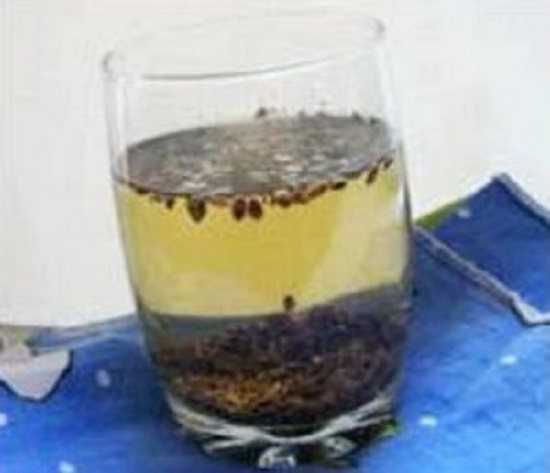
- How does dill water help fight colic and gas in a baby?
- Where to find dill water?
- How to give dill water to a child: dosage and duration.
- Is it possible to make dill water from ordinary garden dill?
How does dill water help fight colic and gas in a baby?
Dill water is an infusion prepared from the seeds of a medicinal plant such as dill or, in other words, fennel . Outwardly, these seeds are very similar to ordinary garden dill; both plants belong to the same Umbelliferae family, hence the popular name dill water instead of the seemingly more correct name - fennel seed infusion .
We figured out the origin of the name. Next question: how can dill water help a baby? Now I’ll explain: fennel seeds are essentially an antispasmodic, and in addition to this they have a calming effect. In other words, dill water helps relieve spasm of intestinal smooth muscles , thus relieving the baby of abdominal pain and allowing accumulated gases or feces to leave the body naturally. Accordingly, dill water helps not only with flatulence or intestinal colic, but also with constipation.
Regular intake of dill water will not only prevent the occurrence of cramps, but will also help improve the overall digestion process. In addition, fennel has another excellent property: it stimulates lactation. That is, drinking dill water will be useful not only for the baby, but also for the mother. Hence, there are so many commercially advertised drugs for the happiness of mother and baby, helping with such sad states of the baby:

Where to find dill water?
The answer suggests itself: since fennel is called pharmaceutical dill, it means that you can buy it at the pharmacy. It is sold either simply in the form of seeds and is designated on the box as “ Common fennel seeds ” or in the form of ready-to-drink dill water. By the way, pharmaceutical dill water is not an infusion of fennel seeds, but a 0.1% solution of fennel oil, which does not particularly affect its properties.
How to give dill water to a child: dosage and duration.
Ready dill water is a clear or slightly cloudy, sweet and aromatic liquid. Give it to your child 1 tsp. three times a day or after feeding.
If you purchased fennel seeds, you can prepare dill water from them as follows: 1 tsp. pour 1 cup of boiling water with a heap of seeds, close the lid and boil for 1 minute. Then turn off the heat and leave to brew for half an hour.
Before giving the resulting infusion to the child, it will need to be filtered and cooled to an acceptable temperature so that the baby does not get burned . This infusion should be given to the child in a slightly larger volume than ready-made pharmacy dill water, namely 1 tbsp. 3 times a day after feeding. You can give your child dill water to drink from a bottle, spoon or syringe. The effect of taking dill water can usually be noticed after 15-20 minutes.
What if the child absolutely does not want to drink dill water? How can you give it to your baby? We must also try to give the child dill water to drink... You can mix it into expressed milk or into an adapted mixture (in the same amount as indicated above: 1 tsp of ready-made infusion or 1 tbsp of self-prepared infusion) and try to give it to the child. Usually this method works great.
By the way, fennel is also contained in some other pharmaceutical preparations designed to alleviate the condition of a child with colic: Plantex, Baby Calm, etc.
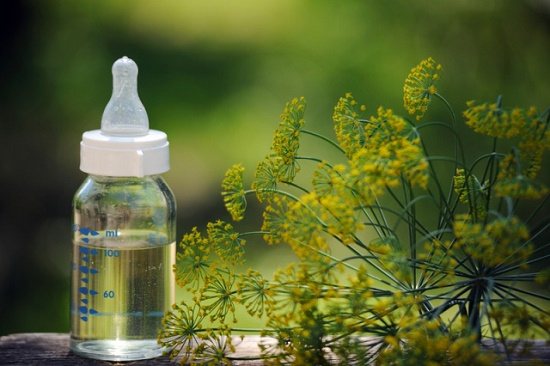
Can a child drink it constantly or only as a course? Dill water has no contraindications, so everything will depend solely on the characteristics of the child’s body and his reaction to dill water. It is usually allowed to give it to a child from the age of 2 weeks until the functioning of the intestines is completely normalized. There are no other restrictions regarding the duration of taking dill water.
Is it possible to make dill water from ordinary garden dill?
The question often arises: what to do if it is not possible to purchase ready-made dill water, fennel seeds or other preparations containing them at the pharmacy? Is it possible to use homemade dill and will it help? Yes, indeed, you can brew homemade dill. The infusion is prepared in the same way as when using fennel seeds. Just keep in mind that homemade dill may not be as effective as fennel , but in any case it has similar properties and may well help your baby relieve the pain of colic.
I also offer you a whole collection of original tests created by me personally, where you can at your leisure evaluate your ability to master the science of raising children). The collection is available after subscribing to blog news, which guarantees no spam, the subscription button is below the article and on the right, in the banner).
However, despite the fact that dill water really helps , there are often cases when the effect of it is not felt at all. By the way, the famous pediatrician, TV presenter and publicist Evgeniy Komarovsky even believes that dill water only has a placebo , that is, it is used only to reassure parents, without providing any real benefit to the child.
However, E.O.K. I am not at all against dill water, arguing that there is still a benefit from it and it consists in the fact that the child receives the water that his body requires, and whether it is dill, chamomile or with any other herb is not so important. the water itself , which enters the body and displaces these same gases. Well, this opinion undoubtedly has the right to be, but it is up to the parents to decide whether to agree with it or not.
In addition to fennel, simethicone and drugs based on it are considered a good remedy for combating colic: Bobotik, Sub Siplex, Espumisan. The action of simethicone is based on the fact that it destroys gas bubbles formed in the intestines, thus helping to cope with bloating and abdominal pain.
That is, although dill water and simethicone are intended to eliminate the same problem, they act completely differently . Maybe then they can be taken at the same time? What if this is the only option that can guarantee a child’s freedom from colic and bloating?
Alas, I cannot answer this question unequivocally, since it is still up to the pediatrician to decide how compatible certain medications are, whether they can be combined or alternated. Well, all I can do is wish the kids health and the young mothers good nights!
If you know effective ways to combat colic or simply want to share your experience of using one or another of the medications mentioned above, write in the comments!
Dill water from the pharmacy
Quite often, doctors prescribe this remedy for children, but it is difficult to find dill water in a pharmacy. For preparation, the pharmacy uses the following recipe: add 0.05 grams of fennel oil per liter of water. The prepared solution can be stored for about 30 days, so it is rarely sold and only in pharmacies with a prescription department, where medications are directly prepared. Pharmacy chains may offer special fennel-based products, for example, Plantex or instant children's tea with fennel. Such drugs can also be used following the instructions.

This drug has already been tested by many mothers and helps many babies well.
Now it has risen significantly in price and costs about 300 rubles (pack of 10 bags).
How to prepare dill water at home (video)
If there is no suitable pharmacy nearby, you can prepare an infusion of dill seeds yourself. How to properly prepare dill water for a newborn at home:
- Mix 1 teaspoon of crushed seeds and a glass of boiling water.
- Wrap and leave for 30-40 minutes.
- Strain the resulting infusion and bring to the desired temperature.
The composition is not intended for long-term storage, and it must be prepared fresh every day. It is better to purchase dill or fennel seeds at the pharmacy.
Maintaining good hygiene will make your baby feel more comfortable, which means you will have less to worry about. Our next material is about the rules of hygiene for newborn girls.
How to prepare dill water at home
To brew the correct infusion, it is better to buy the fennel or dill seeds included in the composition at the pharmacy rather than at the market. They are ground into powder and ground in a coffee grinder or blender. Purified water is used, and all utensils required for production are doused with boiling water. There is no need to boil the seeds. They are infused in boiling water or in a water bath. Then the necessary properties are revealed to the maximum, the taste of the drink becomes more pleasant and does not cause disgust in either the mother or the newborn. How much raw material to add when brewing depends on the recipe.
The most commonly used recipes are:
Recipe No. 1
- fennel tsp without slide;
- water 0.25 l.
The prepared seeds are thrown into a thermos and filled with boiling water. After half an hour, filter.
Recipe No. 2
- dill tsp with a slide;
- water 1/4 liter.
Dill seeds are brewed with boiling water and left for 1-2 hours. Then filter.
Dill water according to pharmacy recipe:
- fennel essential oil (purchased at the pharmacy) 0.05g;
- water 1 l.
After mixing the ingredients, the water is ready for use.
Recipe No. 3
- Fennel seeds (can be dill) 3 g;
- water 0.25 l.
The raw materials are poured with boiling water and kept in a water bath. After 20 min. Remove from heat and let sit for at least an hour. Then they filter and water the newborn.
If your parents have a garden bed with herbs, you can use fresh homemade dill and make dill tea:
- fresh chopped dill 10 g.
- water 2/3 cup.
The greens are thoroughly washed, finely chopped, placed in a thermos and brewed with boiling water. After an hour, filter.
Mode of application

Now let's answer a common question - how to give dill water to a newborn? The decoction should be given to the baby before meals. The dosage is selected based on the age and weight of the baby; very often young mothers ask how much water can be given to the baby. You need to start little by little with a teaspoon 3 times a day. After making sure that the baby tolerates dill water well, you can increase the dose to several spoons 5-6 times a day. Ingoda kids don’t like the taste of the infusion, and they don’t want to drink it. In this case, you can mix some water with a small amount of breast milk or formula and feed the baby with a spoon.
Before giving dill water to your baby, consult your pediatrician to be sure that he is suffering from intestinal colic. Even such a harmless medicine should be used only when necessary.
Do you know what a 1 month old newborn baby should be able to do?
How to notice possible problems and developmental delays in time?
Pay attention to the material - how often a newborn should poop. This is important information for all young mothers.
Preparation
To know how to prepare a carminative or analgesic, it is enough to study the recommendations for preparing the infusion located on the pharmacy pack of dill seeds.
There are several ways to brew the medicine, for example:
- grind a large spoon - 20 g of seeds, pour 220 g of boiling water;
- leave the medicine for half an hour in a container with a lid;
- cool, strain using several layers of gauze and a fine sieve;
- Divide the infusion into 4-5 parts.
Use the product internally, preferably before meals.
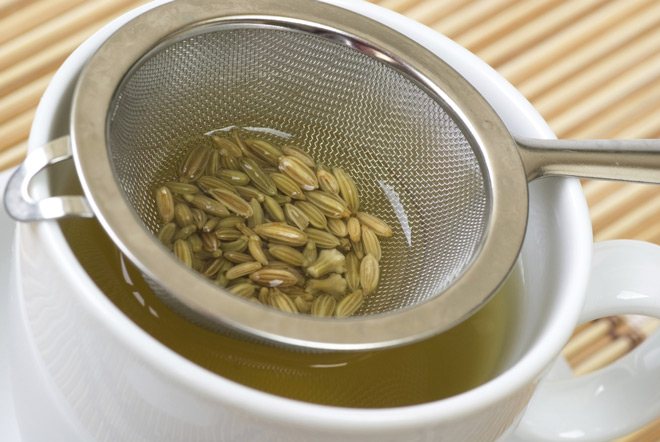
The second recipe involves using the drug for several days; its preparation boils down to the following:
- chop a large spoon of pharmaceutical or homemade dill and mix with a glass of slightly warmed water;
- keep the broth in a sealed container over low heat for a quarter of an hour;
- Cool to room temperature, strain.
Interesting! What to do if your stomach is bloated and you have gas
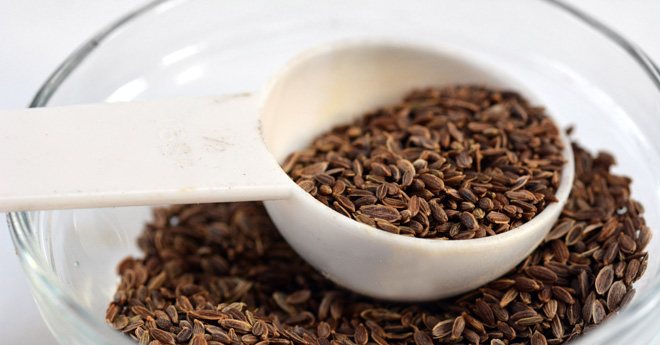
Take half a glass of the brewed product three times a day, a quarter of an hour before meals; for young children, reduce the portion to a tablespoon.
The product can be brewed for future use and stored in the cold for a long time, followed by heating.
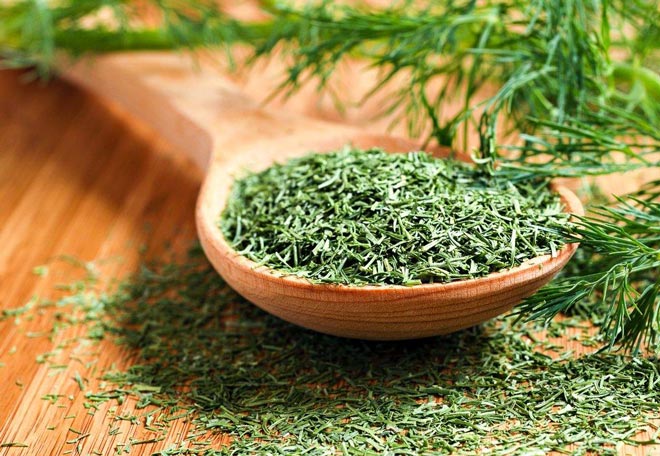
It is also suggested to use plant greens instead of umbrella seeds, such as:
- chop fresh stems or grind dry ones to a powder using a tablespoon;
- mix in a thermos with half a liter of boiling water, leave for 60 minutes;
- filter, cool to room temperature.
Drink the drug within 15-20 minutes. before meals three times a day, 100 ml.
Using dill water for nursing mothers
Dill water is useful not only for children, but also for mothers. It will help increase lactation and improve intestinal function, which can be very important for young mothers.

During breastfeeding, if there is a need to increase lactation, you can use a dill infusion prepared with a tablespoon of seeds in a glass of boiling water. You need to take the resulting infusion either twice a day, half a glass, or a tablespoon 6-8 times a day. You need to drink in small sips, holding it in your mouth for a short time.
You can use dill for colds and inflammation, even while breastfeeding. Also use dill water for rejuvenation as a lotion or compresses.
Dill seeds will also help with swelling and fatigue of the eyes, and decreased vision. To do this, make a compress of gauze soaked in dill water and apply it to the eyes for 20 minutes. This compress will help smooth out wrinkles.
It is not recommended to use dill water at low blood pressure.
Special instructions, overdose
Dill water is not recommended for pregnant women in the third trimester. Although your intestinal health may benefit from taking the drug, it is not advisable to drink dill water or fennel tea.
Delicious recipe! Where to eat in Cyprus
For a woman in the last trimester, using the drug can trigger premature labor. Consultation with a gynecologist is necessary.
When the dose of the drug is exceeded in adults, a decrease in blood pressure is observed, but it is difficult to detect in infants. Therefore, you should not exceed the recommended daily dose when giving dill water to children.

